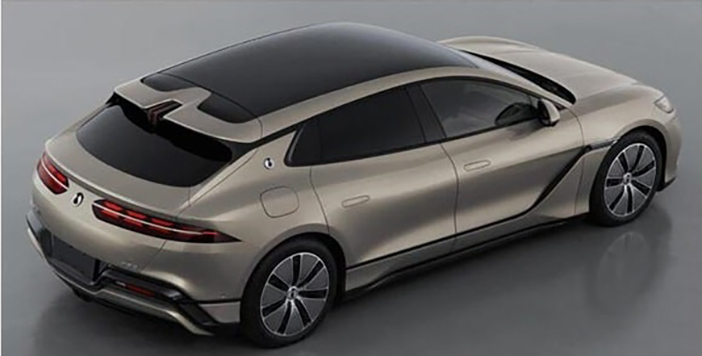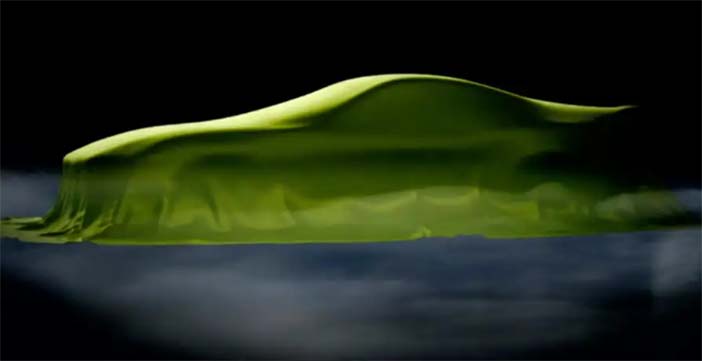+++ South Korea finds itself at a critical juncture as the rise of Chinese-made electric vehicles in the domestic market poses a complex challenge: how to protect national interests while embracing the inevitable shift toward electrification. Unlike the United States (US) and the European Union (EU), which perceive Electric Vehicles (EV) from CHINA as a grave security threat, experts argue South Korea should adopt a more nuanced regulatory strategy. This involves refining its regulations not just to fend off Chinese competition but to leverage it as catalysts for enhancing the competitiveness of the local automakers. Once known primarily for low-end trucks and buses, the Chinese auto industry has shifted gears, exporting increasingly sophisticated passenger cars to global markets, including South Korea. Despite initial consumer skepticism towards Chinese-made cars, perceptions in this country have been changing, driven by competitive pricing and quality improvements. Tesla’s Model Y, manufactured in Shanghai and equipped with CATL batteries, exemplifies this shift, having sold over 15.000 units last year in South Korea alone. The Polestar 2, another China-manufactured EV, became the second top-selling imported EV model in the country last year, with 2.794 units. Furthermore, BYD, the world’s largest EV maker, is not only entering the Korean market this year but also reportedly exploring the establishment of a local manufacturing plant in North Chungcheong Province. The burgeoning presence of Chinese EVs has ignited significant security and economic concerns in Western nations. The EU, wary of market distortions from Chinese state subsidies, is investigating imposing heavy duties, similar to the solar panel disputes back in 2012. In the US, the focus is on national security, with the Department of Commerce scrutinizing the implications of foreign-controlled elements within the connected vehicles sector: vehicles that communicate externally via integrated network connections, with a focus on Chinese EVs. South Korea, however, does not currently see Chinese EVs as an outright market or national threat as it has greater reliance on trade with China, making draconian countermeasures less feasible. It also doesn’t share the same deep security fears about China as its Western allies. Therefore, a more prominent issue is a ballooning auto trade deficit. Following the deployment of the Thaad missile system in 2016 and subsequent Chinese boycots, Korea’s auto trade deficit with China has worsened, reaching $564.2 million in 2023 for EVs, up from $156.49 million in 2022. Discriminatory subsidy practices by the Chinese government have also hampered Korean battery manufacturers. “From 2016 to 2019, Korean battery manufacturers in China missed out on EV subsidies due to the Chinese government’s protectionist policies, giving CATL a significant advantage to becoming the global market leader”, said Lee Wang-hwi, a professor and international trade expert from Ajou University. According to him, South Korea faces additional challenges from the US, which, upon concluding its connected vehicle investigation, will likely urge allies to adopt similar security measures and technical standards. He warned, “As South Korea exported over 1 million vehicles to the US last year, noncompliance could severely restrict our access to the US market”. Still, experts caution against South Korea adopting a regulatory stance towards Chinese EVs that mirrors the US approach, where strict policies like the Inflation Reduction Act (IRA) discriminated against Korean-made EVs and batteries. They advocate for a more nuanced approach that supports the domestic EV market without resorting to outright discrimination against Chinese imports. “Implementing stringent manufacturing origin requirements for subsidies might provoke a backlash from US and European firms exporting China-manufactured EVs”, said Lee. Yet, Hana Securities analyst Han Su-jin, who covers the Chinese automotive and battery sectors, advises against simply increasing subsidies for EVs equipped with Korean batteries. She notes that the current Korean Ministry of Environment’s subsidy criteria, which emphasize fuel efficiency and performance over country of origin, align pretty well with broader industry goals. The most recent revision of these subsidies particularly impacts EVs with lower-performance lithium ion phosphate batteries, like those in Tesla’s Model Y, while favoring high-performance, recyclable batteries used in domestic brands such as Hyundai and Kia. “The newest subsidy revision might be bad news for consumers, but it’s in the right direction. It’s actually in line with practices where the Chinese government once varied their subsidies by driving range and battery type, although their thresholds were lower, allowing broader support for LFP batteries,” she said. She added, “Such policy not only filters out subpar technology but also pushes domestic brands to innovate. The regulators should continue to work on fine-tuning the exact criteria as technology improves”. In addition to incentives, Han suggested implementing a regulatory framework centered on data security to manage the risks associated with imported EVs. She proposes that all Chinese-made EVs should be required to establish local data centers within South Korea. This mandate would ensure that all operational data generated by these vehicles is stored and processed domestically, safeguarding against potential security breaches. This mirrors China’s own requirements for foreign automakers like Tesla, which established a local data center following concerns about data privacy. “But it’s indeed questionable whether South Korea can wield the same economic clout as China does in its dealings with major players like Tesla for investments as big as data centers”, she said. +++
+++ DEALERSHIPS affiliated with BMW and Mercedes-Benz in South Korea incurred substantial losses last year, attributed to what company officials and experts view as excessive promotional campaigns that ultimately impacted earnings, according to company officials and experts, Friday. Data released by the Financial Supervisory Service showed that Han Sung Motor, an authorized dealer for Mercedes-Benz’s local subsidiary, suffered an operating loss of 46.8 billion won ($33.78 million) in 2023 from a year earlier. This is a steep fall from 2022 when it reaped an operating profit of 85.5 billion won. The steep fall in the firm’s revenue is attributable to its aggressive promotional activities, triggered by sluggish market sentiment amid unfavorable macroeconomic circumstances, according to dealers and industry officials. “Dealerships affiliated with imported automakers typically focus on reducing car inventories, particularly when the year-end approaches”, a dealer for a foreign automaker said. “They have no choice but to run diverse promotional campaigns by cutting vehicle sales prices to clear inventory amid this economic slump, even at the expense of their revenues”. Deutsch Motors, an official dealership for BMW Korea and Mini, also suffered a similar fate after experiencing a double-digit profit fall during the same period. The company reported an operating profit of 42.7 billion won last year, down 34 percent from the previous year. Handok Motors, another influential BMW dealership, also faced a steep earnings fall. The company’s operating profit almost halved to 28.4 billion won during the same period. But this was in contrast to the improved profitability of BMW Korea. The local subsidiary of the luxury automaker generated an operating profit of 213.8 billion won last year; up 48 percent from 2022. Sales also jumped to 6.1 trillion won from 5.78 trillion won during the same period. Mercedes-Benz Korea also saw sales grow from 7.53 trillion won to 7.93 trillion won, even if its operating profit fell slightly to 239.2 billion won from 281.7 billion won. However, experts pointed out that luxury automakers should take steps to prevent their dealerships from pursuing excessive promotional campaigns, as such actions risk eroding customer trust. “Under the free market economy, it is tough for overseas automakers to reshape the current sales structure, driven by dealerships’ promotions”, Kim Pil-soo, a professor of automotive technology at Daelim University College, said. “But luxury automakers such as BMW and Mercedes-Benz should always keep in mind the recent fiasco of Audi in South Korea which lost customers’ trust for its unreliable promotional campaigns. Maintaining brand identity is as important as sales increases for sustainable growth in any market”. An official at an automaker said excessive price competition appears to be inevitable among imported automobile dealers. “Hyundai and Kia control the sales policy, including the price of each vehicle, at its headquarters, but this is not the case for imported automakers that sign contracts with multiple dealerships”, the official said. +++
+++ BYD revealed the existence of its upcoming DENZA Z9 GT flagship in early April and shared the first pictures of the electric station wagon driving in Stuttgart, Germany, covered in typical Denza camouflage, together with videos from winter testing. BYD has applied for market homologation of the Denza Z9 GT, revealing the EV’s specifications and pictures of the production version. No car without MIIT approval can be sold in China, and the ministry publishes the list monthly. Automakers are not happy about this, as it reveals pictures, specs and other secrets of cars they haven’t yet launched. But I don’t mind. The Denza Z9 GT is a large 5-seater, nearly 5.2 meters long. Its exact dimensions are 5.180 x 1.990 x 1.500 mm, and its wheelbase is 3.125 mm. It comes with a panoramic canopy and an electric rear wing. The EV is powered by 3 electric motors with a combined output of 710 kW (952 hp). One e-motor in front has a power of 230 kW, and two e-motors in the rear have a power of 240 kW each. The Denza Z9 GT is a heavy car with a curb weight of 2.875 kg. The top speed is capped at 240 km/h. BYD’s LFP Blade battery will power the Z9 GT, but the capacity hasn’t been revealed yet. The EV will feature lidar and carbon fiber decorative exterior parts. Denza is a former 50:50 joint venture between BYD and Mercedes-Benz, which Mercedes left in December 2021, diluting its stake to 10%. Since then, Denza has launched 3 new EVs: the D9 minivan and N7 plus N8 crossovers. Th Z9 GT will be its fourth EV. It will be launched by the end of the year and will come to Europe in 2025. Despite Mercedes still holding 10% in the Denza, there is no information about its participation in the Z9 GT. In some older models, Denza cars featured the “Styled by Mercedes” badge, and Mercedes reportedly did some work on the interior design. Still, Mercedes didn’t announce any of this on recent Denza models. BYD announced that Z9 GT will go global. It will compete with the Porsche Panamera or Geely’s Zeekr 001. +++

+++ FORD has announced that it will launch a new variant of the Mustang next year, promising that “the best is absolutely yet to come”. A preview image released by the company leaves much to the imagination, but suggests it could wear a more rakish rear spoiler than that on the Mustang Dark Horse. Few details are currently known about the car. Speaking at Ford’s 60th-anniversary press conference for the Mustang, Matt Simpson, the firm’s general manager for enthusiast vehicles, said: “It is going to be another addition to the Mustang stable. We are not stopping with Mustang, we are continuing to grow the family. Mustang has always been about being the most fun to drive car. This is going to be an amazing addition to the family, and we cannot wait to show you more”. It is possible that the new model is Shelby’s take on the new 7th generation Mustang, given the famed tuner’s first upgraded pony car, the GT350, celebrates its 60th anniversary next year. Ford has, however, yet to confirm anything about the new model other than its existence. “From road to racing, petrol to electric (we’ve even got a street-legal supercar) the best is absolutely yet to come”, said Simpson. Ford has radically expanded the remit of the Mustang brand in recent years. The first electric car to wear the hallowed pony badge, the Mach-E, arrived in 2020. It spawned the first off-road-focused Mustang, the Mach-E Rally, last year. Meanwhile, the 7th generation V8 muscle car gained a hardcore ‘GTD’ version, Ford’s most powerful road car yet, with more than 800 hp. +++

+++ Bentley, Porsche and Rolls-Royce have seen their sales plunge in South Korea since the government introduced a rule mandating the attachment of GREEN LICENSE PLATES for company cars valued at over 80 million won ($57,800). The change took effect as of the beginning of 2024. The rule is aimed at blocking business owners from purchasing supercars as company vehicles to dodge taxes. Data from the Korea Automobile Importers & Distributors Association showed the number of luxury imported vehicles newly registered here reached 3,868 in March, down 31.4 percent from the previous year. Of particular note is the steep sales fall of the 3 aforementioned pricey carmakers here. The number of Bentley vehicles being registered in South Korea plunged by 77.4 percent in the first 3 months from the previous year. Rolls-Royce and Porsche also reported declines of 35.2 percent and 22.9 percent during the same period. Company officials attributed the falling demand for luxury supercars to the effect of the lime green plates. “Generally speaking, few customers or business owners prefer to purchase vehicles with green plates due to the prevalent negative image on rental and lease cars”, an official from a luxury carmaker said. “This will weaken the overall sentiment from business owners who plan to purchase luxury cars as fleet vehicles”. Other data also showed that fewer business owners are purchasing luxury cars for company use. According to data from KAIDA, the portion of registered company vehicles out of the total imported cars here declined sharply. A total of 25.263 imported cars were registered in March, up 6 percent from the previous year, but the portion of company cars accounted for 28.4 percent. This is the first time that the figure fell below 30 percent. Last year, imported company-owned vehicles took up almost 40 percent of the total being registered. Sales of Lamborghini cars also suffered a decline of 22.2 percent in the first quarter from a year earlier, hit by the introduction of the green plate rule on luxury company-owned vehicles. Lamborghini sold 90 percent of its vehicles as fleet cars in South Korea last year. The figure for Rolls-Royce also came in at 87.3 percent during the same period. The figures for Bentley and Porsche reached 76 percent and 61.1 percent, respectively. Others from the industry said luxury carmakers ended up suffering sharp sales fall due to the combination of the economic slump and the introduction of the regulation. “As the economy is showing no immediate signs of a rebound, demand for pricey vehicles declines”, another official from a different carmaker said. “To make matters worse, the regulation also comes as a bane for such supercar makers to rev up their diminishing sales performance here”, another official from an imported carmaker said. +++
+++ NISSAN said Friday that it has lowered its consolidated operating profit forecast for the year ended last month by 90 billion yen to 530 billion yen. The downward revision comes as vehicle sales were weak in North America amid persistent inflation and in Japan after a powerful New Year’s Day earthquake on the Noto Peninsula. The Japanese automaker will spend 60 billion yen to help suppliers that were hurt by the sales decline in Nissan vehicles. “We’re responsible for our sales decline”, Nissan president and CEO Makoto Uchida said in a virtual press briefing. Nissan cut its global vehicle sales forecast for the year from 3.55 million units to 3.44 million units. The automaker’s failure to achieve its initial sales target may prevent some suppliers from recovering investments, Uchida said. +++
+++ Nissan expects to mass produce electric vehicles powered by advanced next-generation batteries by early 2029, the company said during a media tour of an unfinished pilot plant. Japan’s legacy automakers have fallen behind newer rivals like America’s Tesla and China’s BYD in the emerging all-electric auto sector. But Nissan, like other companies, sees a chance to catch up and perhaps leap ahead with a new kind of battery that promises to be more powerful, cheaper, safer and faster to charge than the lithium-ion batteries in use today. SOLID STATE BATTERIES , which replace the corrosive liquids found in conventional batteries with solid metals, are widely seen as the next step for EVs, and leading automakers are racing to develop versions that can be mass produced. Rivals like Volkswagen and Toyota have also announced efforts to produce solid-state EVs, with Toyota setting a date of 2027-28 to begin bringing them to market. But substantial challenges remain before the technology reaches commercial mass production. The sprawling facility Nissan showed was still mostly empty, but company officials said it’s scheduled to begin operating a pilot production line by March 2025, with commercial production of EVs there set to start by March 2029. “Once electric vehicles get going, costs will come down compared to the internal combustion engine. They will also be so convenient. For one, you won’t ever have to go to a petrol stand”, executive vice-president Hideyuki Sakamoto told reporters at a tour of the sprawling facility southwest of Tokyo. “The engineers at Nissan are all working hard to create this new world”, said Sakamoto. Nissan officials offer few details about many aspects of the technology, as well as the amount of investment and global production plans. They said the company had come up with key, unique materials for the batteries, including a metal form of lithium. Nissan was an EV pioneer, introducing the all-electric Leaf in 2010. The company said it plans to offer solid-state batteries in a range of models, including pickup trucks. “We are finally in the phase of scaling up on our all-solid-state battery line,” said Shunichi Inamijima, corporate vice president. “Our all-solid-state battery technology is a game-changer for making EV sales grow explosively”. +++
+++ Ford and Jaguar are on the verge of exiting the car market of SOUTH KOREA , as they experience a gradual decline not only in sales but also in overall brand identity, due to customers’ increasing preference for home-grown players and a limited number of German luxury automakers, according to data and company officials. The outlook reflects their worsening revenues, primarily triggered by plummeting vehicle sales. According to an audit report by Ford Sales & Service Korea, the automaker reported an operating loss of 4.92 billion won ($3.55 million) in 2023. Its net loss also came in at 19.5 billion won during the same period, hit by a drastic sales drop of 30.25 percent last year compared to 2022. Other data from the Korea Automobile Importers & Distributors Association showed the automaker sold 3,450 vehicles last year, down 55.9 percent from 2022. Ford’s luxury arm, Lincoln, also ended up selling only 1.658 cars here, down 34.9 percent during the same period. Both automakers sold more than 10.000 cars combined in 2021, but the figure almost halved 2 years later. Jaguar is another struggling auto brand in South Korea. It decided to suspend sales of its vehicles from the latter half of 2023 amid a drastic sales fall. Jaguar sold more than 4.100 vehicles in 2017, but it has since failed to recover its old glory. In 2022, its sales stood at only 163 vehicles. Jaguar Land Rover Korea denied rumors of its possible exit from the Korean market, saying that it will resume sales of its new electric vehicles sometime in 2025. Earlier, a group of imported automakers opted to exit the Korean market after struggling to compete with 2 major domestic automakers, Hyundai Motor and Kia, as well as 2 German luxury carmakers, Mercedes-Benz and BMW. Back in 2020, Japan’s Nissan and Infiniti pulled out of the Korean market. French auto brand Citroën also left the local market in 2022 amid falling sales. Despite ongoing struggles among other automakers, Mercedes-Benz and BMW are experiencing increasing popularity among Korean customers. Their combined sales accounted for more than half of the total imported vehicle sales here in 2023. “Even if the global auto industry is in a transition period ahead of the upcoming era for electric vehicles, customers’ preference for local automakers and the 2 German brands appears to remain in place for the time being,” an official from an automaker here said. +++
+++ TOYOTA said it is recalling a total of 135.305 units of the Prius in Japan, citing a rear door handle glitch. The automaker said it will halt production and stop taking orders from dealerships until it can resolve the issue. The company notified Japan’s transport ministry of the recall plan the same day. The ministry said insufficient waterproofing meant electronic parts of the models’ doors could short-circuit if exposed to water, which could prompt the doors to open while the vehicle was being driven. The cars in question are those manufactured between November 2022 and April 2024, Toyota said, adding that it plans to replace the parts on the vehicles affected by the glitch. A total of about 211.000 units will be affected by the glitch worldwide, according to the automaker. +++

